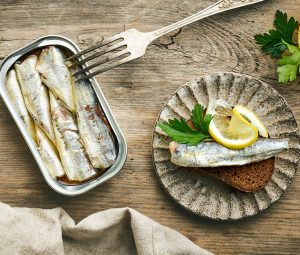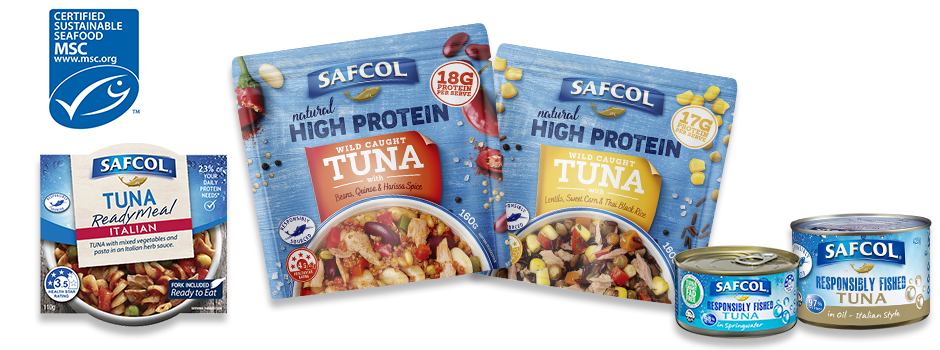Low Vitamin D Promotes Chronic Inflammation
Posted on : May 16, 2023
by Ashleigh Feltham Accredited Practising Dietitian and Accredited Nutritionist

Low Vitamin D Promotes Chronic Inflammation
You may not realise it, but your body requires tight regulation to function at its best. Your diet influences your body’s ability to function – each vitamin and mineral plays a role in helping your body achieve and maintain this balance. One of the vitamins your body needs to function and maintain this healthy balance is vitamin D.
Vitamin D is a fat-soluble vitamin that you can get from food in addition to what your body creates when your skin is exposed to sunlight. There are many roles vitamin D plays in supporting your health and well-being. This includes promoting optimal immune system function as well as allowing calcium absorption. New research reveals another important role of vitamin D to support optimal health in your body, to potentially reduce low-grade, chronic inflammation. Chronic inflammation is linked to diseases and conditions including many types of cancer, obesity and metabolic syndrome.
This new study looks at the effects of vitamin D deficiency on 294,970 participants from 37 to 73 years of age.
Each participant filled out a questionnaire on their health and lifestyle factors. In addition, blood levels of vitamin D in the form of 25-hydroxyvitamin D [25(OH)D] were assessed as well as C-reactive protein – a marker of inflammation.
Researchers found that as blood levels of vitamin D increased, the levels of C-reactive protein decreased. This trend started from levels of deficiency at less than 25 nanomoles per litre. This trend was seen up to 50 nanomoles per litre of vitamin D concentration in the blood. There were no further decreases above this level.
This trend that plateaued at around 50 nanomoles per litre reinforces the need for optimal, but not excessive, vitamin D. As a fat-soluble vitamin, any excess is stored in the body and can lead to toxicity.
The main source of vitamin D comes from the sun, but there are food sources that also provide the body with this fat-soluble vitamin. This includes foods like seafood, eggs including the yolk, dairy and fortified products like cereals, orange juice and margarine.
The adequate intake of vitamin D recommended by the National Health and Medical Research Council for men and women aged 19-50 years of age is five micrograms per day. Between the ages of 51 and 70 years, the adequate intake increases to ten micrograms per day. From the age of 71 years on, adequate intake further increases to 15 micrograms per day.
Note: 1 microgram (µg) is equal to 1 international unit (IU).
Food sources of vitamin D include:
- There are two types of vitamin D: D3 and D2. Vitamin D3 is the more bioavailable form. This means that the body absorbs D3 more easily.
- Sardines, canned. 2 sardines = 1.2 µg
- Tuna, canned. 85g = 1.0 µg
- Trout (rainbow), farmed, cooked. 85g = 16.2 µg
- Salmon (sockeye), cooked. 85g = 14.2 µg
- Fortified food products such as cereal, breads, spreads like margarine and butter, and plant-based drinks like soy.
- Cod liver oil. 1 teaspoon = 34 µg
- Dairy
- Milk, 2% fat, Vit D fortified. 1 cup = 2.9 µg
- Cheddar cheese. 28g = 0.3 µg
- Liver, beef. 85g = 1.0 µg
- Egg yolk.
- One large egg yolk = 3.8 μg
- Mushrooms exposed to UV light: This provides vitamin D in the form of D2.
- Mushrooms, exposed to UV light. ½ cup = 9.2 µg
A great recipe to try for a healthy dose of vitamin D is Salmon Goat Cheese Danish.
This recipe contains salmon, goat curd, milk and egg, which are four food sources of vitamin D.
Take home message
Low-grade, chronic inflammation puts your body at a greater risk of many disease states. While there is no single factor that promotes an optimal level of balance in your body, achieving adequate levels of vitamin D is an important component.

References:
- Ang Zhou, Elina Hyppönen, Vitamin D deficiency and C-reactive protein: a bidirectional Mendelian randomization study, International Journal of Epidemiology, 2022;, dyac087,
- C-Reactive Protein Test. Mayo Clinic.
- S. Department of Agriculture, Agricultural Research Service. Food Data Central 2019




